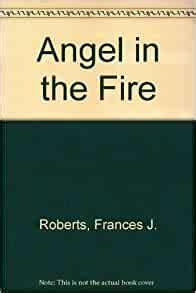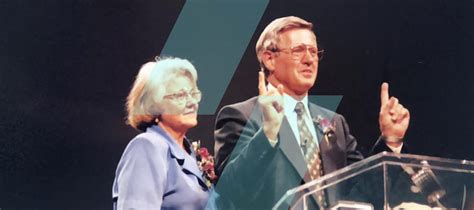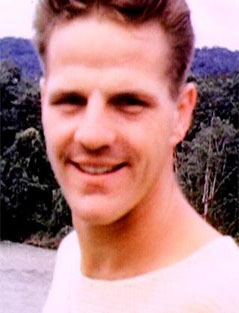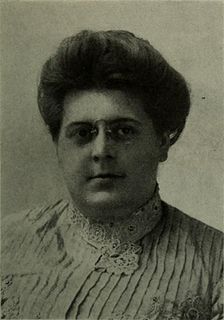Top 689 Possessions Quotes & Sayings - Page 12
Explore popular Possessions quotes.
Last updated on April 20, 2025.
Consider the cost when Christians ignore Jesus commands to sell their possessions and give to the poor and instead choose to spend their resources on better comforts, larger homes, nicer cars, and more stuff. Consider the cost when these Christians gather in churches and choose to spend millions of dollars on nice buildings to drive up to, cushioned chairs to sit in, and endless programs to enjoy for themselves. Consider the cost for the starving multitudes who sit outside the gate of contemporary Christian affluence.
One of the great arts in living is to learn the art of accurately appraising values. Everything that we think, that we earn, that we have given to us, that in any way touches our consciousness, has its own value. These values are apt to change with the mood, with time, or because of circumstances. We cannot safely tie to any material value. The values of all material possessions change continually, sometimes over night. Nothing of this nature has any permanent set value. The real values are those that stay by you, give you happiness and enrich you. They are the human values.
We feel led to caution . . . against forming the bad habit of incurring debt and taking upon themselves obligations which frequently burden them heavier than they can bear, and lead to the loss of their homes and other possessions. We know it is the fashion of the age to use credit to the utmost limit. . . . We, therefore, repeat our counsel . . . to shun debt. Be content with moderate gains, and be not misled by illusory hopes of acquiring wealth. . . . Let our children also be taught habits of economy, and not to indulge in tastes which they cannot gratify without running into debt.
If my sense of security lies in my reputation or in the things I have, my life will be in a constant state of threat and jeopardy-a fear that these possessions may be lost, stolen, or devalued. If I'm in the presence of someone of greater net worth, fame, or status, I feel inferior. If I'm in the presence of someone of lesser net worth, fame or status, I feel superior. My sense of self-worth constantly fluctu-ates. I don't have any sense of constancy, anchorage, or persistent selfhood. I am constantly trying to protect and insure my assets, properties, securities, position, or reputation.
There were the physical challenges of hitchhiking across Turkey, Iran, Afghanistan, and Pakistan as they were quite dangerous areas. I wrote about that in The Journey Home. I loved my family and they loved me, so making a choice so completely different from the life they knew was also a challenge. Not having material possessions or the security of a home and taking vows of celibacy for life were kind of natural for me, although they were also challenging. But I guess the greatest challenge for me was that I loved so many different spiritual paths.
The simplification of life is one of the steps to inner peace. A persistent simplification will create an inner and outer well-being that places harmony in one's life. For me this began with a discovery of the meaninglessness of possessions beyond my actual and immediate needs. As soon as I had brought myself down to need level, I began to feel a wonderful harmony in my life between inner and outer well-being, between spiritual and material well-being.
This is not just a simple story of "money can't buy happiness." Or maybe that's just what it is. And if it is, why shouldn't it be? Because if this is something we are already supposed to know, then why don't we know it? Why do we chase and scrabble and fight for things to flaunt, why? Why do we reach for power over other people, and through the thin superiority of our possessions, believe we have it? Why do we let money make people bigger, and allow those without it to be made smaller? How did we lose the truth in the frantic, tribal drumbeat of more, more, more?
[Man] is the only animal who lives outside of himself, whose drive is in external things—property, houses, money, concepts of power. He lives in his cities and his factories, in his business and job and art. But having projected himself into these external complexities, he is them. His house, his automobile are a part of him and a large part of him. This is beautifully demonstrated by a thing doctors know—that when a man loses his possessions a very common result is sexual impotence.
I become one of those people who walks alone in the dark at night while others sleep or watch Mary Tyler Moore reruns or pull all-nighters to finish up some paper that's due first thing tomorrow. I always carry lots of stuff with me wherever I roam, always weighted down with books, with cassettes, with pens and paper, just in case I get the urge to sit down somewhere, and oh, I don't know, read something or write my masterpiece. I want all my important possessions, my worldly goods, with me at all times. I want to hold what little sense of home I have left with me always.
True words aren't eloquent; eloquent words aren't true. Wise men don't need to prove their point; men who need to prove their point aren't wise. The Master has no possessions. The more he does for others, the happier he is. The more he gives to others, the wealthier he is. The Tao nourishes by not forcing. By not dominating, the Master leads.
ONLY in the release of the seen do you lay hold on the unseen, My little one. Heaven waits for those who are no longer bound to earth. The degree to which bondages are exchanged for liberties while still in the flesh is in proportion to the extent to which eternal values are held in higher esteem that worldly success and possessions. If a man loves Me, he will hold his soul more precious than his body and will pursue holiness at the expense of wealth; for to follow after that which perishes is to forfeit the prize of the high calling in Christ.
Some things are up to us [eph' hêmin] and some things are not up to us. Our opinions are up to us, and our impulses, desires, aversions–in short, whatever is our own doing. Our bodies are not up to us, nor are our possessions, our reputations, or our public offices, or, that is, whatever is not our own doing.
...the tragedy of consumerism: one acquires more and more things without taking the time to ever see and know them, and thus one never truly enjoys them. One has without truly having. The consumer is right-there is pleasure to be had in good things, a sacred and almost unspeakable pleasure, but the consumer wrongly thinks that one finds this pleasure by having more and more possessions instead of possessing them more truly through grateful contemplation. And here we are, living in an economy that perpetuates this tragedy.
Ultimate peace begins within; when we find peace within there will be no more conflict, no more occasion for war. If this is the peace you seek, purify your body by sensible living habits, purify your mind by expelling all negative thoughts, purify your motives by casting out any ideas of greed or self-striving and by seeking to serve you fellow human beings, purify your desires by eliminating all wishes for material possessions or
self-glorification and by desiring to know and do God's will for you. Inspire others to do likewise.
The place is good. How good, one must have circumnavigated the globe to discover. Why not stay? Take root? But roots are chains. I have a terror of losing my freedom. Free, without ties, unpossessed by any possessions, free to do as one will, to go at a moment's notice wherever the fancy may suggest--it is good. But so is this place. Might it not be better? To gain freedom one sacrifices something [...] and all that these things and people signify. One sacrifices something--for a greater gain in knowledge, in understanding, in intensified living? I sometimes wonder.
I have never looked upon ease and happiness as ends in themselves - this critical basis I call the ideal of a pigsty. The ideals that have lighted my way, and time after time have given me new courage to face life cheerfully, have been Kindness, Beauty, and Truth. Without the sense of kinship with men of like mind, without the occupation with the objective world, the eternally unattainable in the field of art and scientific endeavors, life would have seemed empty to me. The trite objects of human efforts - possessions, outward success, luxury - have always seemed to me contemptible.
The deer aren't our prey or our possessions -- they're us. They're us at one point in the cycle of life and we're them at another point in the cycle. The deer are twice your parents, for your mother and father are deer, and the deer that gave you its life today was mother and father to you as well, since you wouldn't be here if it weren't for that deer.
A Russian should rejoice if Poland, the Baltic Provinces, Finland, Armenia, should be separated, freed from Russia; so with an Englishman in regard to Ireland, India and other possessions; and each should help to do this, because the greater the state, the more wrong and cruel is its patriotism, and the greater is the sum of suffering upon which its power is founded. Therefore, if we really wish to be what we profess to be, we must not only cease our present desire for the growth of the state, but we must desire its decrease, its weakening, and help this forward with all our might.
That the happiness of man may still remain imperfect, as wants in this place are easily supplied, new wants likewise are easily created; every man, in surveying the shops of London, sees numberless instruments and conveniencies, of which, while he did not know them, he never felt the need; and yet, when use has made them familiar, wonders how life could be supported without them. Thus it comes to pass, that our desires always increase with our possessions; the knowledge that something remains yet unenjoyed, impairs our enjoyment of the good before us.
The paradox is that exactly the reverse is true. Everything that’s really worthwhile in life came to us free; our minds, our souls, our bodies, our hopes, our dreams, our ambitions, our intelligence, our love of family and children and friends and country. All these priceless possessions are free.
But the things that cost us money are actually very cheap and can be replaced at any time. A good man can be completely wiped out and make another fortune. He can do that several times. Even if our home burns down, we can rebuild it. But the things we got for nothing, we can never replace.
We drink too much, smoke too much, spend too recklessly, laugh too little, drive too fast, get too angry, stay up too late, get up too tired, read too little, watch tv too much. We have multiplied our possessions but reduced our values. We talk too much, love too seldom, and hate too often. We've learned how to make a living but not a life. We've added years to life, not life to years.
Father, let me be weak that I might loose my clutch on everything temporal. My life, my reputation, my possessions, Lord, let me loose the tension of the grasping hand. Even, Father, would I lose the love of fondling. How often I have released a grasp only to retain what I prized by 'harmless' longing, the fondling touch. Rather, open my hand to received the nail of Calvary, as Christ's was opened- that I, releasing all, might be released, unleashed from all that binds me now. He thought Heaven, yea, equality with God, not a thing to be clutched at. So let me release my grasp.
There is a certain amount of righteous indignation I hold for the American culture, because to get back to the real root of it, to get broader about it, my opinion that is my species - and my culture in America specifically - have let me down and betrayed me. I think this species had great, great promise, with this great upper brain that we have, and I think we squandered it on God and Mammon. And I think this culture of ours has such promise, with the promise of real, true freedom, and then everyone has been shackled by ownership and possessions and acquisition and status and power.
When a little pleasure has flashed for a moment against the dark, I have made that jewel mine. I have hundreds of them ... I call it my Necklace of Perfect Joy. When the world goes wrong, I have only to close my eyes and remember all the links in my chain, set with gems, some large and some small, but all beautiful with the beauty which never fades. It is all I can take with me when I go. My material possessions must stay behind, but my Necklace of Perfect Joy will bring me happiness to the end, when I put it on, to be nevermore unclasped.
Explore, and explore, and explore. Be neither chided nor flattered out of your position of perpetual inquiry. Neither dogmatise yourself, nor accept another's dogmatism. Why should you renounce your right to traverse the star-lit deserts of truth, for the premature comforts of an acre, house, and barn? Truth also has its roof, and bed, and board. Make yourself necessary to the world, and mankind will give you bread, and if not store of it, yet such as shall not take away your property in all men's possessions, in all men's affections, in art, in nature, and in hope.
So what is the difference between someone who willfully indulges in sexual pleasures while ignoring the Bible on moral purity and someone who willfully indulges in the selfish pursuit of more and more material possessions while ignoring the Bible on caring for the poor? The difference is that one involves a social taboo in the church and the other involves the social norm in the church.
The possessions God allows us to have are intended for our use, not our enjoyment. Trying to squeeze something out of them that was never in them in the first place is a futile endeavor. A cow's udders, gently pressed, will yield sweet milk, nourishing and refreshing. Applying more and more pressure will not produce greater quantities of milk. We lose the good of material things by expecting too much from them. Those who try hardest to please themselves with earthly goods find the least satisfaction in them.
I think we'll start defining wealth and success differently and develop new approaches to consumption. Things that have always signified wealth and security - home ownership, new cars, luxury goods - have become a burden for many people and will be replaced by more experiential consumption like travel and recreation, self-improvement, and so on. By divesting themselves of certain big-ticket possessions that have been keeping them tied down, people will gain a new freedom to live more meaningful lives. Changes in consumption and lifestyle are key to Great Resets.
It must not be supposed that happiness will demand many or great possessions; for self-sufficiency does not depend on excessive abundance, nor does moral conduct, and it is possible to perform noble deeds even without being ruler of land and sea: one can do virtuous acts with quite moderate resources. This may be clearly observed in experience: private citizens do not seem to be less but more given to doing virtuous actions than princes and potentates. It is sufficient then if moderate resources are forthcoming; for a life of virtuous activity will be essentially a happy life.


























